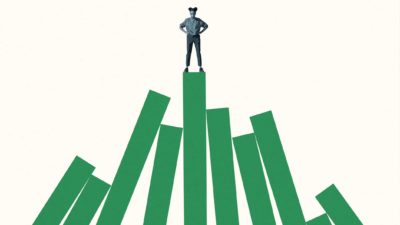There are many reasons I love the ASX, but one of the most fundamental is its democratic values. If this sounds a little strange, let me explain. For most companies, there exists a principle where the amount of capital you have invested in a public stock is in equal proportion to your voting power. It's the capitalists' version of 'one vote, one value'. If you own 10% of a company's shares, let's say Commonwealth Bank of Australia (ASX: CBA), this will roughly translate into 10% of the voting power for that company (not to mention a $14 billion fortune).
This may seem like common sense, but this is not a common practice in other stock markets around the world. The ASX has strict rules on what a company's share structure must look like if it is to trade on its exchange, and this involves following the 'one vote, one value' principle. I understand there are some exceptions for agricultural companies, but for the most part, ASX companies follow this principle.
As some more internationally active investors out there may have noticed, if you wish to reach across the Pacific and buy some shares in Alphabet Inc. (Google) which is listed on the NASDAQ, you have two choices – GOOGL shares (also known as Class A) and GOOG shares (Class C).
What's the difference?
GOOGL shares get one vote per share (sounds reasonable) but GOOG shares get… no vote. That's right – GOOG shareholders are to be seen and not heard. It gets better: there is a third type of Alphabet share, but it's one that no one can buy publicly – Class B shares. Class B Alphabet shares get 10 votes per share and the lucky people who own most of these shares are Larry Page and Sergei Brin (Alphabet's founders). This means that although Brin and Page (only) have a stake of about 12% each, they control over 50% of the voting power in Alphabet. When Alphabet was first floated, the founders drew up this cosy arrangement and it essentially shuts out everyone else who wants to have a say in how their company is managed for the rest of time.
Many other US companies follow this 'dual-class' share structure, including Facebook, Lyft, Snap and News Corporation and some are more equal than others – Snap shares come with no votes at all, unless you're an institutional investor or a founder.
Foolish takeaway
Although Mark Zuckerberg or Larry Page would defend their system as allowing the founders to focus on long-term goals rather than keeping shareholders happy every year, I certainly think our system is better as it forces investors to put their money where their mouths are. There are many things to like about the ASX, but democratic capitalism… you can't beat that.








